News and Events
News and Events
News and Events
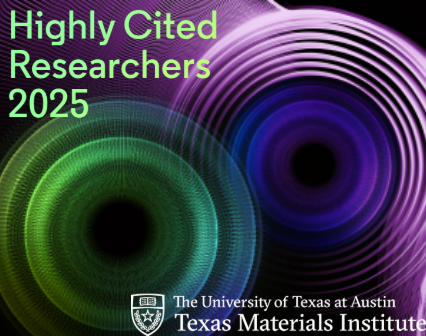
- Details
Seven faculty members who work with and in the Texas Materials Institute have been distinguished as Highly Cited Researchers for 2025 based on Clarivate's Web of Science Core Collection, a platform that provides reference and citation data from academic journals, conferences, and other documents across disciplines. Each Highly Cited Researcher has authored mulitple highly-cited papers and rank in the top 1% for their field and publication year.

- Details
Dr. Alexander Demkov, a professor of Physics, an associate faculty member of the Oden Institute, and one of the Texas Materials Institute's Core Faculty, was elected as 1 of the 18 MRS Fellows for 2026.
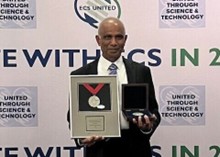
- Details
Dr. Arumugam Manthiram, an affiliate member of the Texas Materials Institute, received the Electrochemical Society's Olin Palladium Award at the 248th Meeting on October 13th, 2025.
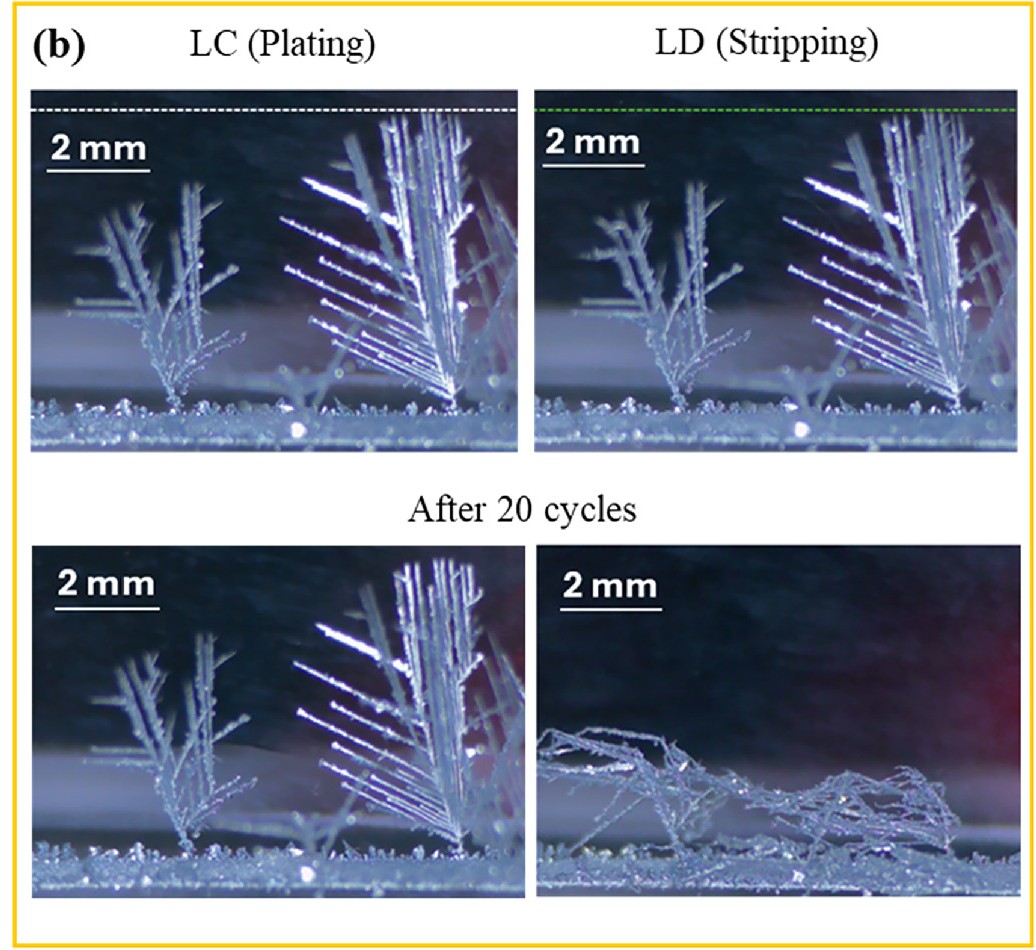
- Details
Tushare Telmasre, a graduate student in the Materials Science & Engineering Program, has recently published an article in ECS Advances that explores the connection between battery usage, recharging, and the surface of the zinc anode. A student in Dr. Venkat Subramanian's lab, Telmasre, along with postdoctoral researcher Dr. Lubhani Mishra, and other UT researchers from the CMES Lab, the paper finds that how a battery is used and then recharged directly impacts the surface of the anode and dendrite growth.
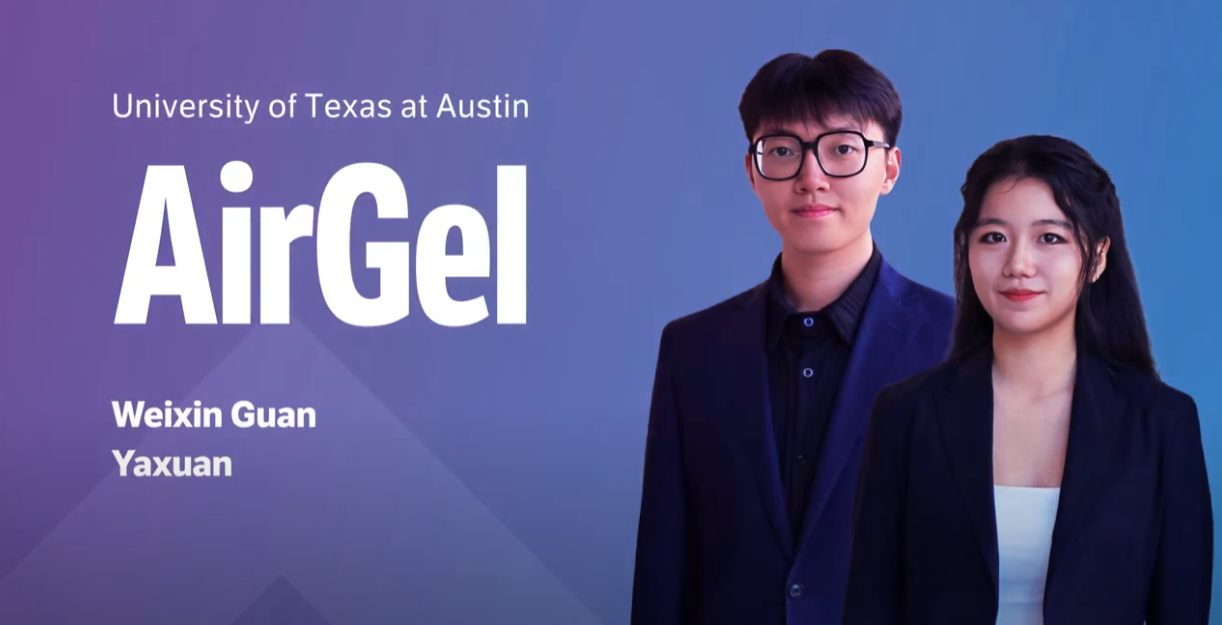
- Details
*Reposted from UT News*
Weixin Guan and Yaxuan Zhao, graduate researchers with the Texas Materials Institute and the Walker Department of Mechanical Engineering at UT’s Cockrell School of Engineering, were recognized for their innovative and cost-effective device, AirGel, which extracts drinking water from humidity in the air. Their invention also won the competition’s People’s Choice Award and received a USPTO Patent Acceleration Certificate from the U.S. Patent and Trademark Office.
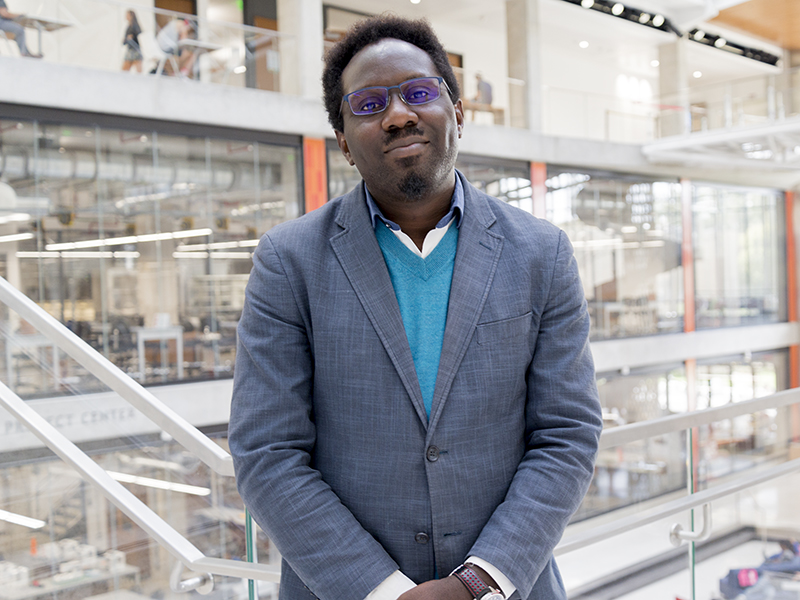
- Details
Dr. Deji Akinwande, a professor in Electrical and Computer Engineering department and an affiliate of TMI, was awarded a contract of up to $2.5 million from the Advanced Research Projects Agency for Health (ARPA-H), a governmental agency aimed at funding research that supports biomedical and health breakthroughs. This award will help advance Dr. Akinwande's development of a wearable blood pressure monitoring system, a key vital sign for assessing cardiovascular health.

- Details
Dr. Huiliang "Evan" Wang, an associate professor in Biomedical Engineering and a faculty affiliate of the Texas Materials Institute, was one of the fifteen recipients to receive the National Academy of Medicine's Healthy Longevity Catalyst Awards. Dr. Wang will be awarded $50,000 in seed funding to support his design of wearable, non-invasive system for sleep enhancement.

- Details
Dr. Devleena Samanta, a faculty affiliate of Texas Materials Institute, and a small team from her lab, have recently published a new article introducing the use of single-moledule DNA tweezers (SMDTs) to control enzymes and turn them on and off. Dr. Shivudu Godhulayyagari, a postdoctoral fellow, and Sara Nixon, a graduate student in chemistry, developed this new way to control enzymes without needing to change the enzyme itself.
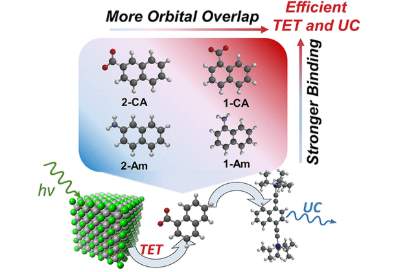
- Details
Dr. Sean Roberts, a faculty affiliate of the Texas Materials Institute, and his group have had their work on lead halide perovskite quantum dots recently published in ACS Energy Letters. The team studied how different variants of naphthalene energy acceptors stick to these dots, which impact their ability to facilitate photon upconversion, a process wherein low-energy visible photons are used to drive emission of high-energy UV light. The production of UV light via this process has several potential uses, such as initiating chemical reactions and facilitating high-resolution 3D printing.

- Details
Dr. Arumugam Manthiram, a professor in Mechanical Engineering and affiliate of Texas Materials Institute, along with Tianxing Lai, a graduate researcher in his lab, have recently published an article in The Bridge about the role artificial intelligence (AI) can play in discovering new materials and battery chemistries for the future.

